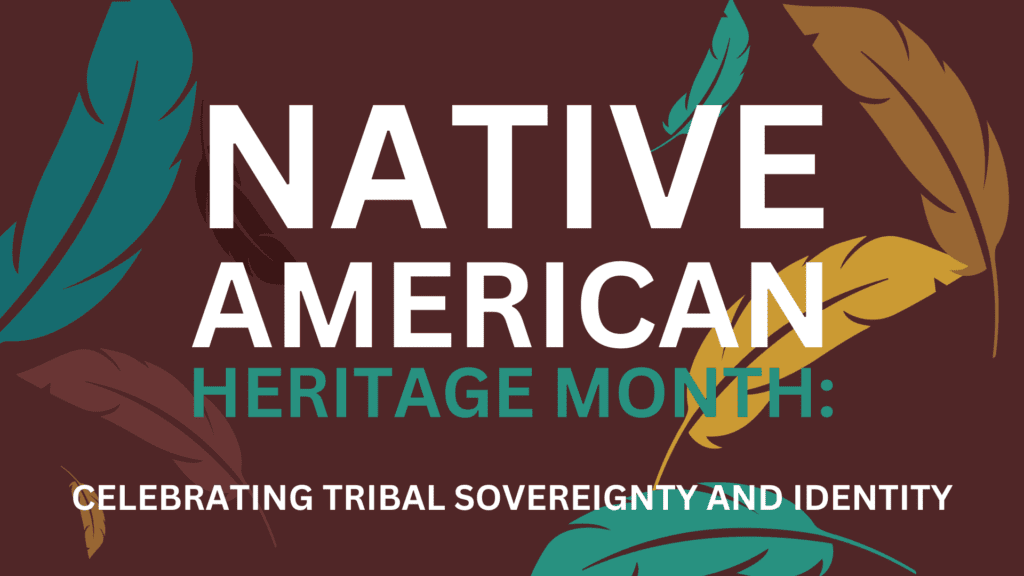
This November we celebrate Native American Heritage Month — a time dedicated to honoring and recognizing the rich tapestry of indigenous cultures, but also an occasion to highlight the importance of tribal sovereignty and the preservation of indigenous identity.
Tribal Sovereignty:
Tribal sovereignty is a fundamental aspect of the Native American experience. It represents the unique political status and self-governance rights of federally recognized tribes. These rights are enshrined in treaties, laws, and court decisions that have shaped the relationship between tribal nations and the federal government. This sovereignty empowers tribes to make decisions about their lands, resources, and the well-being of their people.
Recognizing tribal sovereignty is not only an acknowledgment of historical agreements but a vital step toward supporting the self-determination and autonomy of indigenous communities. It’s essential to respect the right of tribes to govern themselves and make decisions that best serve their members. This includes matters related to land management, education, healthcare, and the preservation of cultural heritage.
Indigenous Identity:
Preserving indigenous identity is intricately linked to tribal sovereignty. Native American identity is rooted in language, culture, and traditions passed down through generations. Tribal sovereignty plays a critical role in protecting and revitalizing these cultural elements. For instance, tribes have the authority to develop and manage their own education systems, enabling them to incorporate their languages and traditions into the curriculum.
One of the ways to celebrate Native American Heritage Month and promote the preservation of tribal identity is by learning about the unique cultures of indigenous nations. Take the time to explore their languages, art, music, and traditional practices. By doing so, you can gain a deeper appreciation for the diversity and richness of Native American heritage.
Participating in events hosted by tribal communities is another excellent way to embrace indigenous culture. Attending events, cultural festivals, and community gatherings allows you to witness traditional dances, listen to storytelling, and savor indigenous cuisine. Engaging in these experiences not only fosters a sense of community but also demonstrates your support for their efforts to share their culture.
To celebrate tribal sovereignty and identity, it’s also important to advocate for indigenous rights and participate in efforts to address the challenges faced by Native American communities. Support initiatives that protect tribal lands, improve access to quality healthcare and education, and promote economic development within indigenous communities.
Conclusion:
Native American Heritage Month is a time to celebrate the enduring heritage and identity of indigenous cultures. Recognizing the importance of tribal sovereignty in preserving this identity is an essential part of the celebration. By respecting the autonomy of tribal nations, learning about their cultures, and advocating for their rights, we can contribute to a more inclusive and equitable society that values and cherishes the unique identities of Native American communities.
This Native American Heritage Month, Forrest Solutions would like to acknowledge that our New York office sits on traditional territory of the Lenepe.





